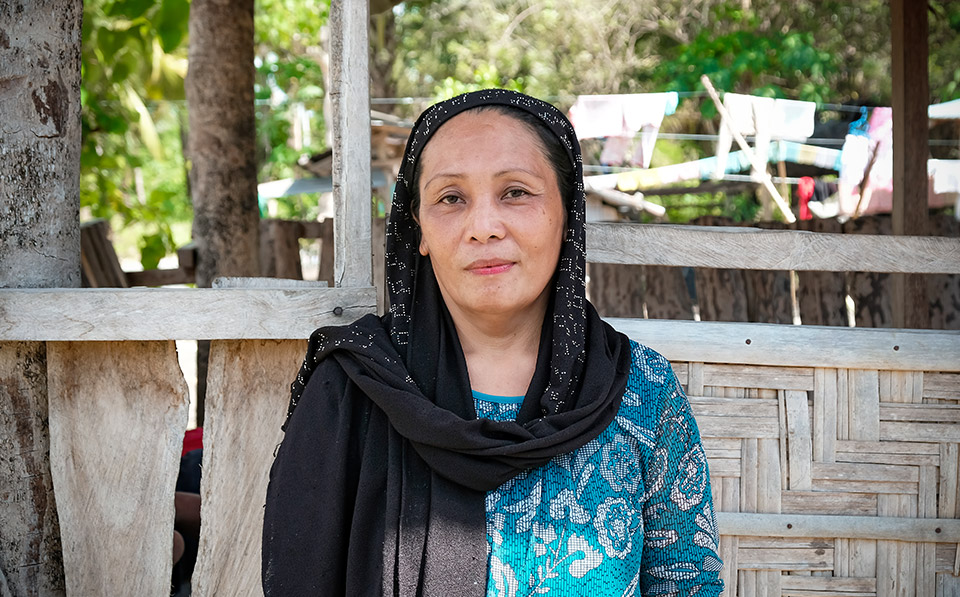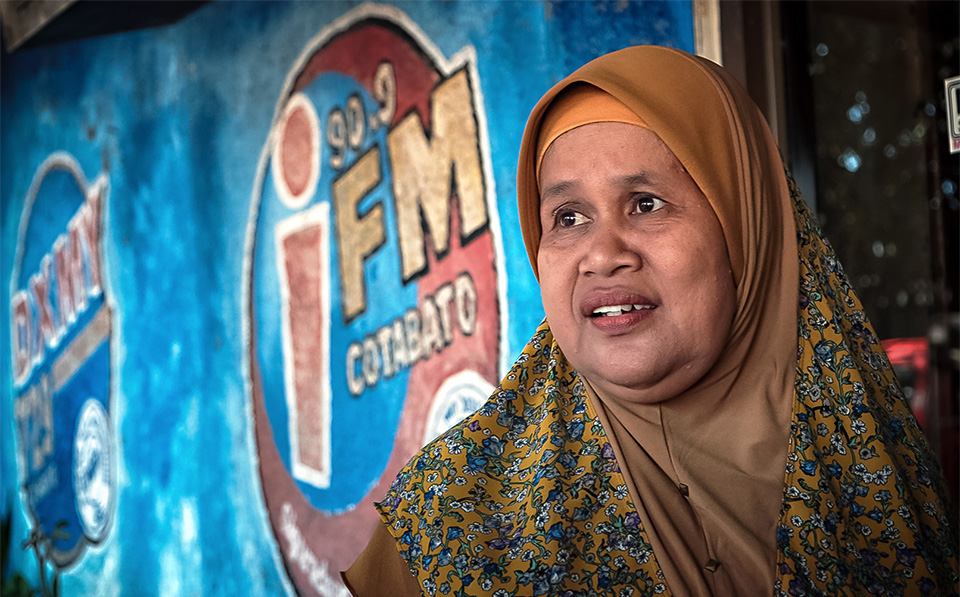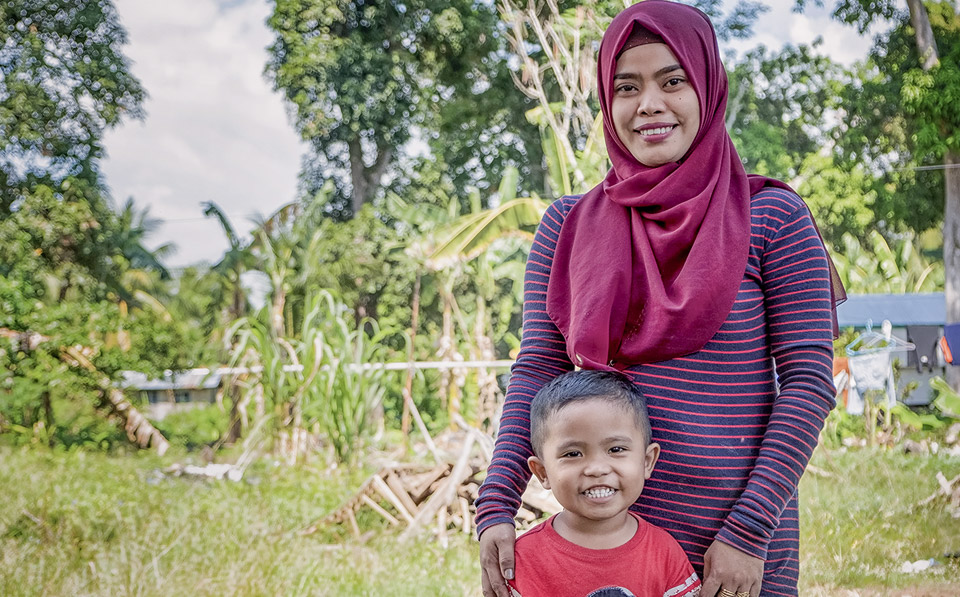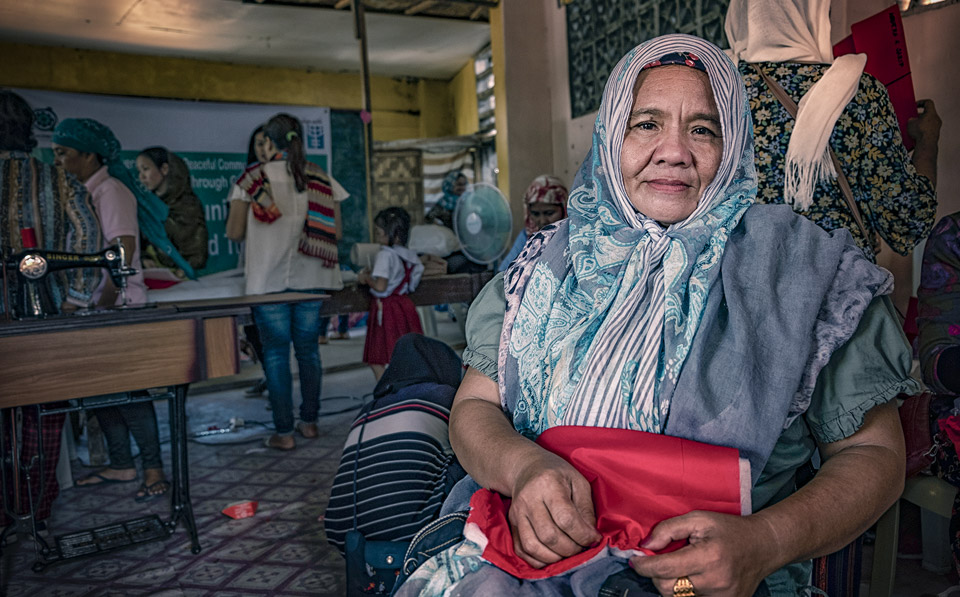Bangsamoro Women’s Summit raises grass-roots women’s voices and pushes for women’s participation in peacebuilding
Date:
Author: Lesli Davis
Bangsamoro, Philippines — On the heels of the swearing in of a new transitional authority for the Bangsamoro Autonomous Region of Muslim Mindanao (BARMM), UN Women hosted an Inaugural Bangsamoro Autonomous Region Women’s Summit from 28-29 March in Davao, southern Philippines, bringing together over 100 grass-roots women and maintaining momentum for their full participation in the new government.
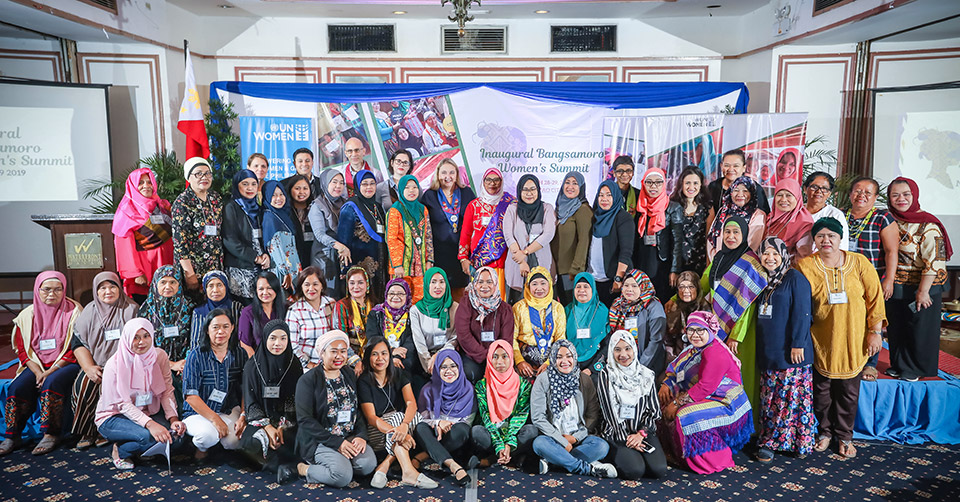
The Summit produced a women’s agenda, which called for: spaces to ensure women’s needs are met in laws and policies, full implementation of the existing Gender and Development Budget, and the creation of a Ministry for Women in the new Bangsamoro government. A representative from the Regional Commission on Bangsamoro Women accepted the agenda from the women at the Summit, in a symbolic ceremony signifying the Commission’s willingness to push forward the women’s recommendations.
“Rest assured, this will be prioritized as we craft the regional peace and security agenda of the BARMM,” said Janette Rojas of the Regional Commission on Bangsamoro Women.
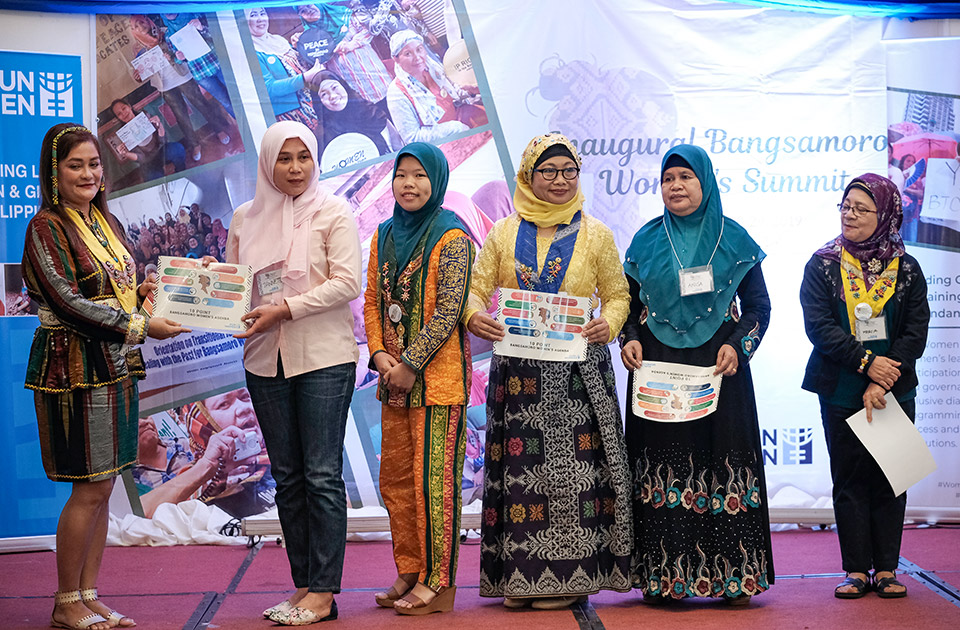
Following decades of struggle for peace in the southern Philippines, the Bangsamoro Organic Law was ratified in July 2018, creating a new political entity to replace the existing autonomous region in Mindanao. The new law includes reserved seats for women in Parliament and Cabinet and ensures that at least five per cent of the budget will be allocated to programmes on gender and development.
“We have a strong blueprint for addressing the needs of women and girls and promoting women’s participation as we go into a new Bangsamoro. But we have to take what’s on paper and make it a reality in the daily lives of women,” said Alison Davidian, Programme Specialist at UN Women’s Regional Office for Asia and the Pacific.
The Summit, organized by UN Women in collaboration with the Embassies of Norway, Canada and Australia, brought together over 100 women leaders and advocates trained in five provinces through UN Women programmes since 2015. They represented diverse sectors of the Bangsamoro, including indigenous peoples, youth, religious entities, government and diaspora communities.
“Bangsamoro women have been historically ignored in formal peace, security and development processes in our region. But we are driving change within our communities, and we want to participate on a bigger scale,” said Rufa Cagoco-Guiam, a participant of the Summit and a professor at Mindanao State University.
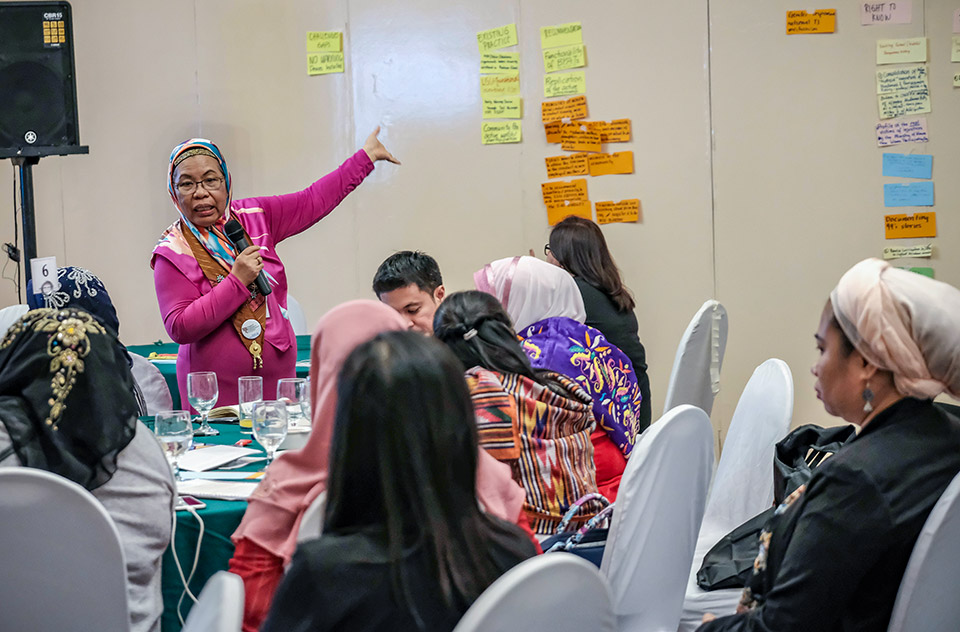
In 2017, women leaders trained under the programme gathered signatures from community members calling for the establishment of a transitional justice mechanism to respond to the historical injustices, human rights violations and marginalization of the Bangsamoro. The women then formed a Speakers’ Bureau to generate support for the passage of the Bangsamoro Organic Law in Moro diaspora communities.
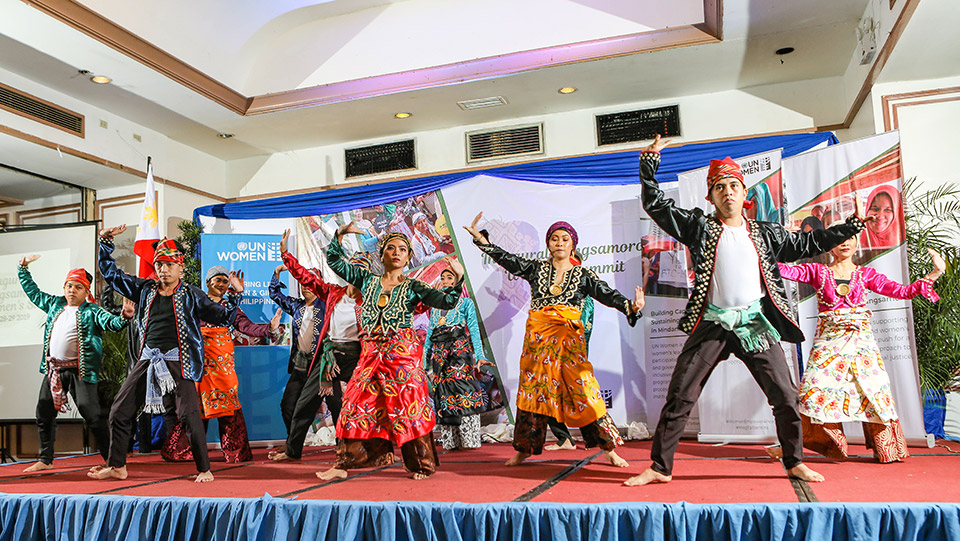
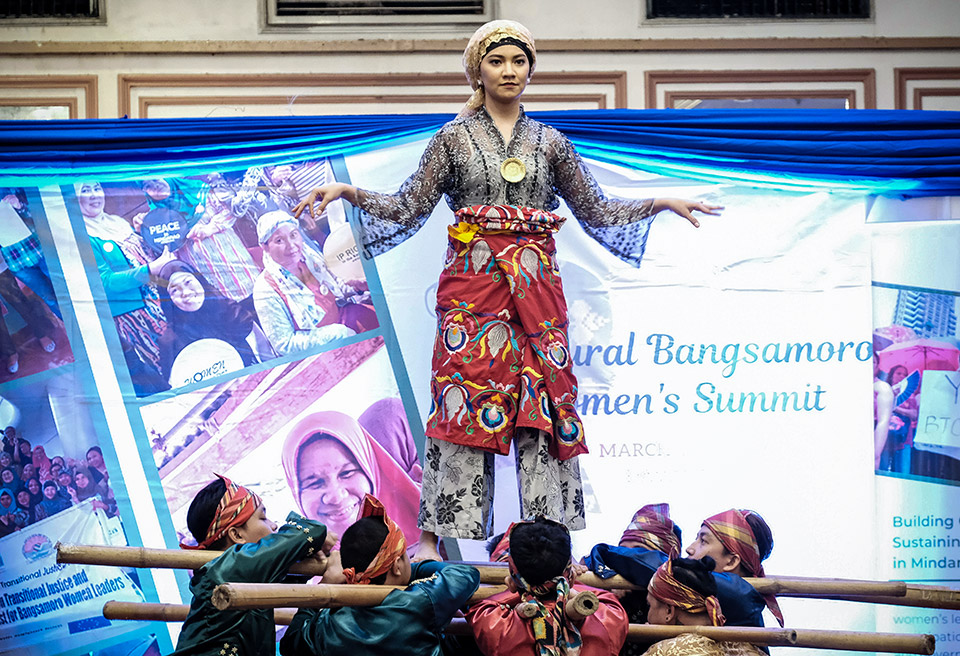
The Summit builds on UN Women’s work of raising the voices of grass-roots women in the Bangsamoro region of the Philippines and preventing violent extremism. Read just a few of their stories:
Almira Maricor, 49, a mother and entrepreneur from Orandang community in the Bangsamoro area of the southern Philippines. Almira, along with other women from Orandang, had the courage to mobilize the local government and successfully reduce conflict in their village. More
Anisa Taha Arab, 54, an Islamic religious leader and host of a UN Women radio show broadcast across Mindanao, Philippines. UN Women-supported show informs women of their rights and how they can contribute to peace and prevent violent extremism. More
Islamia N. Kamakan, 28, a mother and new entrepreneur from the Bangsamoro region of the southern Philippines. Her family fled fighting in another village, walking three days without food, to live in the Buayan community. More
Narimbai, 48, a mother and entrepreneur from Barangay Bulalo in Bangsamoro. She is a leader and active participant in UN Women’s programme to prevent violent extremism through women’s economic empowerment. More
